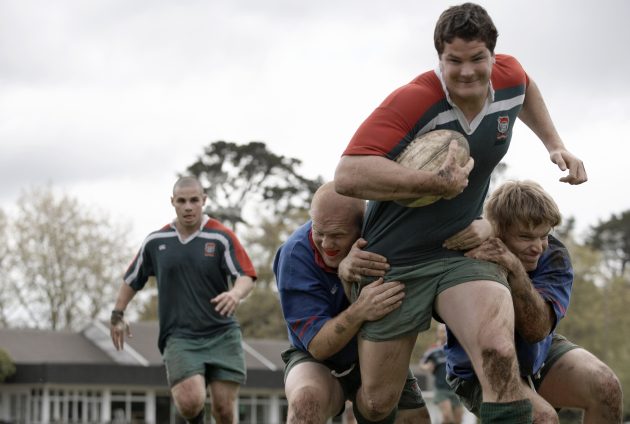From 1 July, tackles must be below the base of the sternum
The RFU has approved a drastic reduction to the tackle height in the community game in England with players expected to tackle below the base of the sternum from 1 July.
The English governing body initially faced widespread backlash after the RFU Council announced plans to move tackles to the waist in January but has since undergone a large scale consultation process.
The RFU council has voted to adopt the law changes with the new tackle height defined as “below the base of the sternum: The area of the tummy or belly and below”.
Law Variations Approved to Lower Tackle Height in Community Rugby Union in England from 1 July
Read more about the findings of the consultation and the law changes⬇️https://t.co/ZxVFKFNxDV pic.twitter.com/6XliKEK39e
— Rugby Football Union (@RFU) April 21, 2023
Related: RFU apologises for furore over tackle amendment
RFU tackle height law changes
Law 9 Foul Play
9.11.(a) Players must not do anything that is reckless or dangerous to others including leading with the head, shoulder, elbow or forearm, or jumping into, or over an opponent.
9.11.(b) Ball-carriers must not lower their height significantly before making contact with an opponent in open play.
Related: World Rugby recommends global “belly tackle” trial in community game
9.12. A player must not physically or verbally abuse anyone. Physical abuse includes, but is not limited to, biting, punching, contact with the eye or eye area, striking with any part of the arm, head, shoulder, forearm or knee(s), stamping, trampling, tripping or kicking.
9.13. A player must not tackle or attempt to tackle an opponent early, late or dangerously. Dangerous tackling includes, but is not limited to, tackling or attempting to tackle an opponent in open play above the base of the sternum even if the tackle starts below the base of the sternum.
Read more: Radical tackle height reduction initially approved by RFU
“I would like to thank everyone who contributed to this consultation and to say thank you in advance to the wider rugby family who will be vital to ensuring we implement this change successfully,” said RFU President, Nigel Gillingham.
“We along with many other Unions across the world are lowering the tackle height to reduce the risk of concussion. We know change is challenging however, it is imperative that we are guided by the science to help make the game safer for our players. As part of our ongoing injury surveillance studies, we will monitor the impact of this law variation and would encourage as many clubs as possible to sign up to participate in CRISP by contributing their data it will enable us to continue to monitor and introduce injury prevention strategies.”
Download the digital edition of Rugby World straight to your tablet or subscribe to the print edition to get the magazine delivered to your door.
Follow Rugby World on Facebook, Instagram and Twitter.





